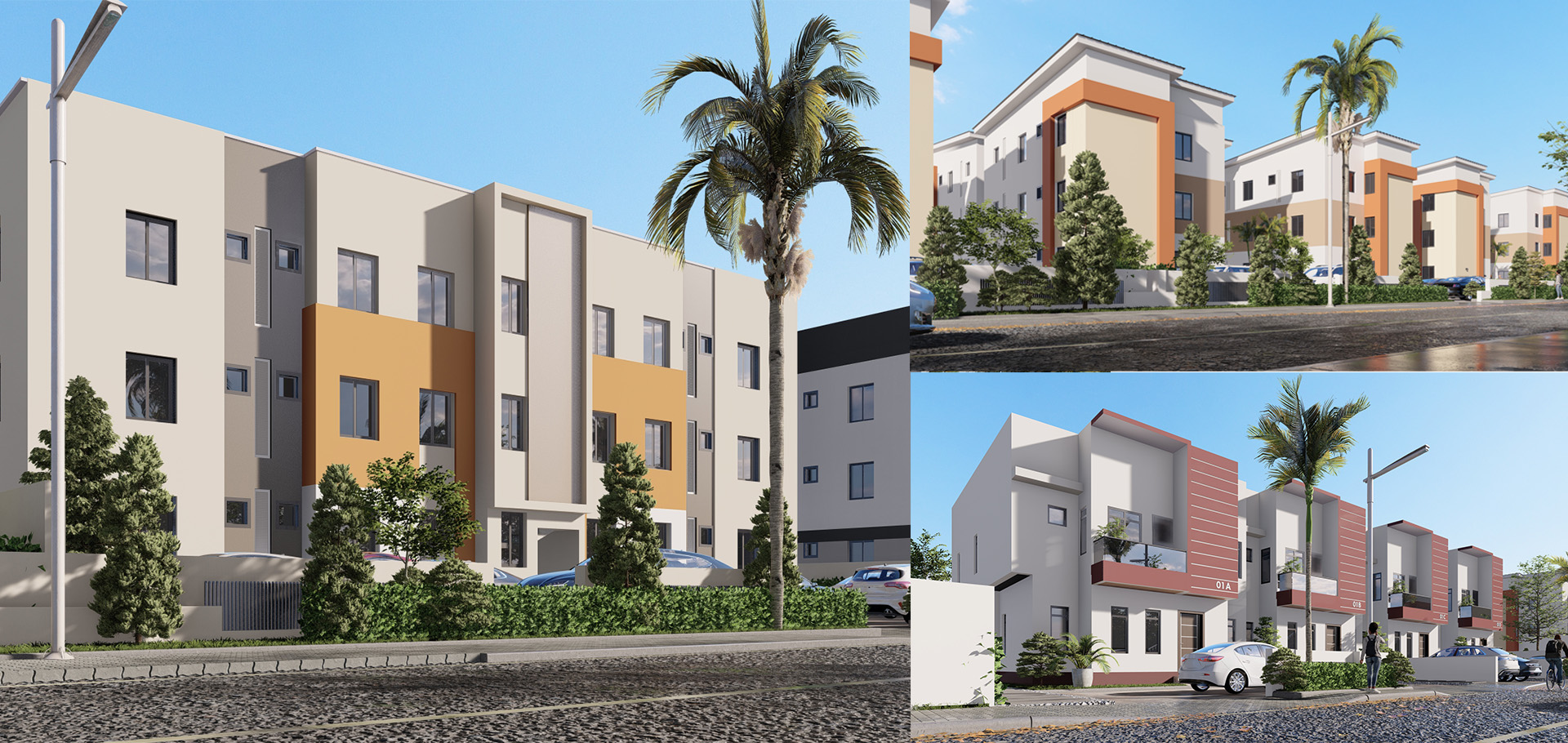Sustainable Affordable Housing Strategies for Solving LowIncome Earners’ Housing Challenges in Nigeria

The document titled “Sustainable Affordable Housing Strategies for Solving Low-Income Earners’ Housing Challenges in Nigeria” presents a thorough examination of the pressing housing issues faced by low-income populations in Nigeria. It emphasizes the need for sustainable and affordable housing solutions that can effectively address these challenges, particularly in light of the country’s rapid urbanization and population growth.
Introduction
The report begins by highlighting the critical housing crisis in Nigeria, where a significant portion of the population lives in inadequate conditions, including shanties and informal settlements. With over 90% of Nigerians classified as low-income earners, there is an urgent need for innovative housing strategies that are both affordable and sustainable. The authors argue that addressing these challenges requires a multifaceted approach that incorporates social, economic, environmental, institutional, and technological dimensions.
Key Challenges
1. Affordability
The report identifies affordability as one of the primary barriers to adequate housing for low-income earners. High construction costs, inflation, and rising interest rates have made it increasingly difficult for this demographic to secure housing. Many families are forced to live in substandard conditions due to their inability to afford decent homes.
2. Supply Shortages
There is a significant shortage of affordable housing units in Nigeria. The report notes that existing housing stock is often outdated or poorly maintained, failing to meet the needs of low-income families. This scarcity drives up competition for available units and exacerbates the housing crisis.
3. Regulatory Barriers
The regulatory environment surrounding housing development in Nigeria is complex and often acts as a deterrent to new projects. Lengthy approval processes, stringent zoning laws, and insufficient funding mechanisms hinder the construction of affordable housing.
4. Social Stigma
Social stigma associated with public housing can discourage investment and support for social housing initiatives. The report emphasizes the need for public awareness campaigns to shift perceptions and promote the benefits of inclusive communities.
Sustainable Housing Strategies
The document outlines several sustainable strategies that can be employed to tackle these challenges effectively:
1. Community Engagement
Engaging local communities in the planning and development process is essential for creating successful housing projects. The report advocates for involving residents in decision-making to ensure that developments meet their needs and foster a sense of ownership.
2. Innovative Financing Models
To enhance affordability, the report suggests exploring innovative financing options such as microfinance, cooperative housing models, and public-private partnerships. These approaches can help reduce costs and increase access to financing for low-income families.
3. Use of Local Materials
Utilizing locally sourced materials can significantly lower construction costs while promoting environmental sustainability. The report highlights materials such as stabilized earth blocks and interlocking bricks as viable alternatives that can reduce reliance on expensive imported resources.
4. Integration of Renewable Energy
Incorporating renewable energy technologies, particularly solar power, into housing designs can help lower long-term energy costs for residents. This integration not only enhances sustainability but also improves the overall resilience of housing developments.
5. Policy Reforms
The report calls for comprehensive policy reforms that streamline regulations and incentivize sustainable practices among developers. Simplifying approval processes and providing tax incentives for sustainable building practices can encourage more investment in affordable housing.
Conclusion
In conclusion, the “Sustainable Affordable Housing Strategies for Solving Low-Income Earners’ Housing Challenges in Nigeria” report underscores the urgent need for innovative solutions to address Nigeria’s housing crisis. By focusing on community engagement, innovative financing models, local materials, renewable energy integration, and policy reforms, stakeholders can work together to create sustainable and affordable housing options for low-income populations. The recommendations aim not only to alleviate immediate housing challenges but also to foster long-term improvements in living conditions across Nigeria’s urban landscapes. Ultimately, a collaborative approach involving government agencies, private developers, and community members is essential for achieving meaningful progress in this critical area.
Further reading:
[PDF] Sustainable architectural solutions for affordable housing in Nigeria wjarr
The Challenges in Providing Affordable Housing in Nigeria and … scirp
